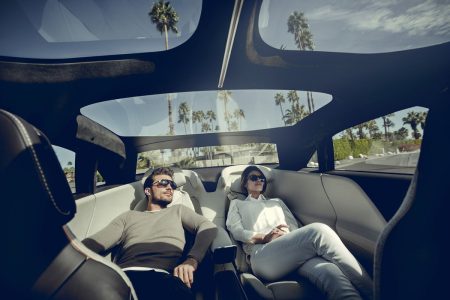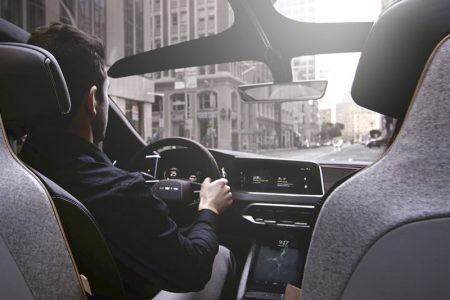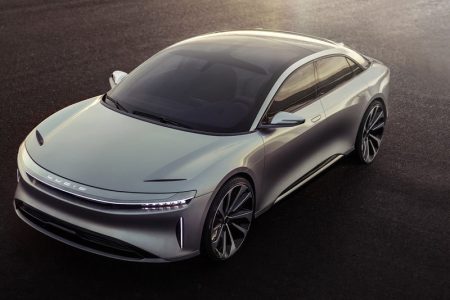September 18, 2018 – Maybe this is just hedging their bets, but the Public Investment Fund (PIF) of Saudi Arabia has just invested $1 billion US in an American electric vehicle (EV) manufacturer, Lucid Motors. Located in Newark California, Lucid is planning to launch its first EV model, the Lucid Air, in 2020. The Saudi investment will be used to complete the engineering of the EV and help to finance the construction of a Casa Grande, Arizona production facility.
The Lucid Air is priced similarly to the Tesla Model S at around $60,000 US for the base model. Fully electric and loaded with autonomous hardware, it is meant to be high-performance vehicle offering a range of 640 kilometers (400 miles) between recharges.
It’s engineered for car sharing with its back passenger seats reclining to a position similar to what you would experience in first and business class on airplanes like the Boeing 787 Dreamliner or Airbus a380.

And if you are the driver you feel like you have stepped into a cockpit with a wraparound dash display and centre console infotainment system that will seamlessly work with today’s and tomorrow’s virtual personal assistants such as Siri, Alexa, and Google.

And it packs all of this into a form factor smaller than the Tesla Model S while providing greater interior space.
Lucid Motors started out in 2007 as a battery provider named Atieva. Later it began supplying electric powertrains to other transportation manufacturers. The company acquired significant experience in its early years accumulating more than 31 million kilometers of data around its electric powertrain performance before reaching out to a former Tesla chief engineer to come over and become Lucid’s CTO. And in looking for design it hired away Mazda North America’s director of design responsible for the Mazda Miata.
Equipped with the Mobileye Advanced Driver Assist System, advanced short and long-range radar, lidar, supporting cameras and sensors, and a terabyte of onboard data storage for processing and file compression, Lucid Air off the assembly line in 2020 will be Level 4 and Level 5 autonomy-ready.
Compare that to the current EVs, hybrids, and internal-combustion-engine vehicle models today that offer autonomous features equivalent to Level 3. That means these vehicles have autonomous safety features which engage in certain traffic and environmental conditions, but for most functions still require a human operator.
Lucid Air at Level 4 autonomy will be able to drive on its own without human assistance under normal trip conditions. And at Level 5, the Lucid Air will operate without a human driver even on snow and ice-covered roads as well as in off-road conditions. Legislation will have to catch up to the Lucid Air when arrives on the driving scene.
The plan is to produce between 8 and 10,000 EVs in the first year and ramp up to 50,000 within three years time.
For consumers to make buying choices involving EVs, three issues continue to be inhibitors.
- EVs with any range remain too expensive for the average family.
- The charging network is still not extensive enough to get people to stop purchasing internal-combustion-engine-powered vehicles.
- The manufacturers of EVs simply do not make enough of them to encourage mass adoption.
And then there is the on and off again governments subsidies that have been put in place for EV purchasers as part of green program initiatives. These handouts, often over $10,000 US per vehicle are paid mostly to buyers who have the financial means to afford them at full price whether it be a Tesla, Lucid, or Mercedes EV.
A final comment about the Saudi investment. One billion dollars is small change to Saudi Arabia so one shouldn’t infer that the oil kingdom is now vested in a transition to a low carbon future. The Saudis were recently rumored to be considering investing in Tesla to help Elon Musk take the company private. That quickly didn’t pan out. The one billion is more than likely just good public relations.









